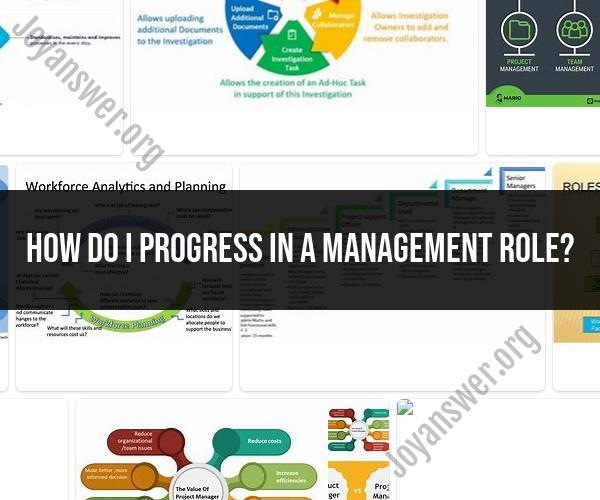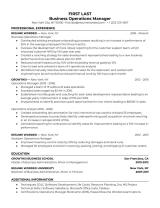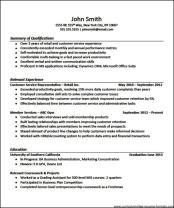How do I progress in a management role?
Progressing in a management role requires a combination of skills, behaviors, and strategies to effectively lead teams and contribute to organizational success. Here's a step-by-step guide on how to progress in a management role:
Set Clear Goals:
- Begin by setting specific, measurable, achievable, relevant, and time-bound (SMART) goals for your career in management. These goals can include achieving higher positions, developing specific skills, or contributing to the success of your team and organization.
Continuous Learning and Skill Development:
- Invest in ongoing learning and skill development. Management roles often require a broad set of skills, including leadership, communication, problem-solving, and decision-making. Consider formal education, workshops, seminars, and online courses to enhance your skills.
Seek Feedback:
- Request feedback from your superiors, peers, and subordinates. Constructive feedback can help you identify areas for improvement and build on your strengths.
Mentorship and Coaching:
- Find a mentor or coach within your organization or industry who can provide guidance, share insights, and offer support as you advance in your management career. A mentor can be a valuable source of advice and encouragement.
Build Strong Relationships:
- Cultivate positive relationships with your team members, colleagues, and superiors. Effective interpersonal skills and the ability to collaborate are essential for a successful management career.
Lead by Example:
- Demonstrate the behaviors and qualities you expect from your team members. Leading by example sets a high standard and fosters a culture of excellence.
Delegate Effectively:
- Master the art of delegation. As a manager, you must trust your team members and delegate tasks appropriately. This allows you to focus on strategic initiatives and higher-level responsibilities.
Time Management:
- Develop strong time management skills to prioritize tasks, meet deadlines, and balance competing demands. Effective time management is critical in management roles.
Problem Solving and Decision-Making:
- Hone your problem-solving and decision-making abilities. Managers often encounter complex challenges that require thoughtful analysis and decisive action.
Communication Skills:
- Improve your communication skills, both written and verbal. Effective communication is vital for conveying your vision, expectations, and feedback to your team.
Adaptability:
- Be open to change and adapt to evolving circumstances. In today's dynamic business environment, adaptability is a valuable trait for managers.
Networking:
- Build a strong professional network by attending industry events, joining associations, and connecting with peers. Networking can lead to new opportunities and insights.
Take Initiative:
- Volunteer for challenging projects and initiatives within your organization. Proactively seek opportunities to demonstrate your leadership abilities and contribute to the company's success.
Ethical Leadership:
- Uphold high ethical standards in your leadership approach. Ethical behavior fosters trust and credibility, both within your team and across the organization.
Results-Oriented Approach:
- Focus on achieving results and meeting key performance indicators (KPIs). Demonstrating tangible contributions to the organization's success is a key factor in career advancement.
Self-Reflection:
- Regularly reflect on your leadership style, strengths, weaknesses, and accomplishments. Self-awareness is a critical component of personal and professional growth.
Seek Promotions and New Opportunities:
- Actively pursue promotions and opportunities for advancement within your organization. Discuss your career goals with your superiors and express your interest in taking on greater responsibilities.
Stay Informed:
- Stay updated on industry trends, market developments, and emerging technologies that may impact your role and industry. Knowledge is a powerful asset for managers.
Cultivate Resilience:
- Develop resilience to cope with setbacks and challenges. A positive attitude and the ability to bounce back from adversity are qualities of effective managers.
Celebrate Achievements:
- Acknowledge and celebrate your achievements and milestones, as well as those of your team. Recognizing success fosters motivation and team morale.
Progressing in a management role is a continuous journey that requires dedication, self-improvement, and a commitment to leadership excellence. By developing your skills, nurturing relationships, and actively seeking growth opportunities, you can advance your career in management and contribute significantly to your organization's success.












